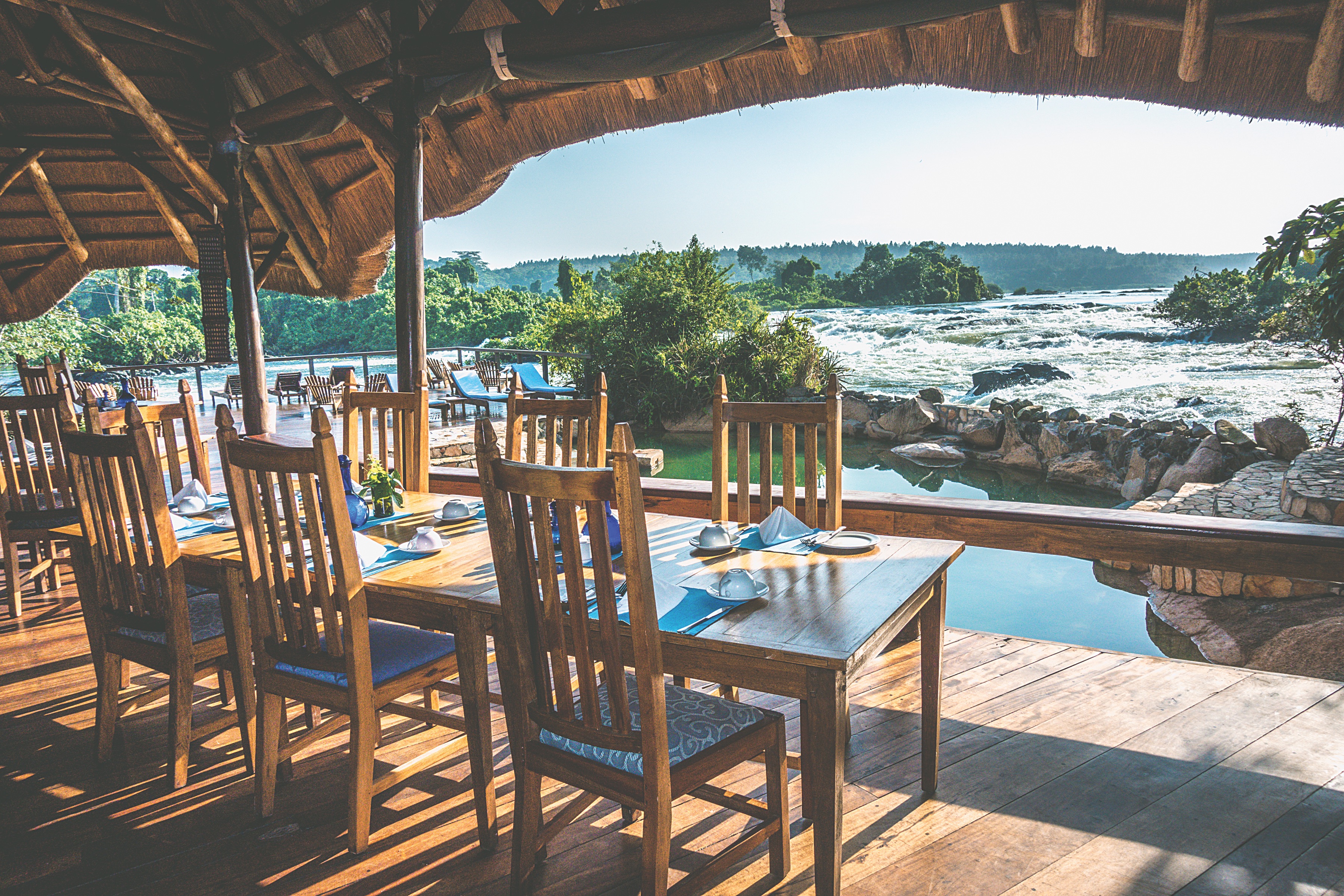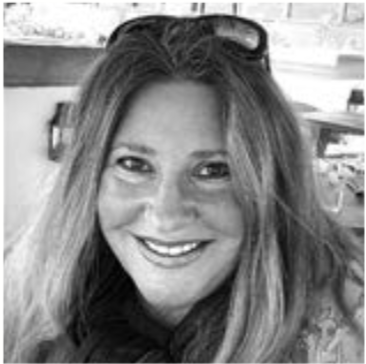 Photo by Drink Tea & Travel
Photo by Drink Tea & Travel Recently, I had a conversation about the difference between situations that are dangerous but safe, and those that are safe but dangerous. It may seem like a word game, a sort of incongruous anagram, but there is a startling difference between the two.
All of us do things on a regular basis that we perceive as dangerous but actually are safe. We get in aluminum cans with wings and let a perfect stranger transport us at 38,000 feet. That may sound dangerous but it’s relatively safe. On the other hand, we easily can convince ourselves we are safe when we aren’t. We might drive home from work, stressed and anxious, and then space out behind the wheel. Seems safe, but it’s dangerous. Or we stay in jobs or relationships when we are unhappy. We let people and opportunities slip through our fingers because we are afraid of disappointment or what others might think. Safe, but dangerous.
When you read that I’ve been living in Africa for over a decade, you might get the impression that I am doing something dangerous and that I am fearless. You may perceive me as different than you in some way — another “breed,” because you live in a “safe” environment and I seemingly do not.
The truth is that I am a city girl, a “Private Benjamin” of the first order, a klutz who is scared of everything and probably more afraid than most people. It is only through compulsive curiosity, willful inability to surrender to a challenge, and fear of boredom that I have managed to propel myself to do any of the terrifying things I’ve done. There is a groove in my brain that is stuck like the needle on a scratched record, playing the same track in a never-ending loop. “You can’t do that,” it taunts. “Oh yeah, watch me,” I croak, usually while holding back tears.
The same little girl, whose terror of heights after a shameful fall had to have her daddy spend weekends teaching her how to climb a six-foot jungle gym in elementary school, hot air ballooned at dawn over herds of elephants and hippos in Kenya, crash landing in the middle of the African savannah. The girl who had nightmares for months after watching the Cowardly Lion in “The Wizard of Oz” went on a walkabout in the Mara Triangle with Masai warriors, a tribe whose equivalent of a bar mitzvah includes killing a real lion with a spear and eating its still beating heart.
So when the two partners that run Karuna Yoga Journeys invited me to a yoga and meditation retreat at Wildwaters Lodge over the weekend, the record started to play. I know this place well. I knew the original owners of the lodge and watched as they built it by hand in the middle of the Nile on a rocky promontory with Colorado River-style rapids roiling on all sides. My memory of the initial shock that set in when I saw that the only way to get onto the island was to traverse the calm edge of the turbulent waters on a rickety-looking dugout canoe still haunted me.
The fact that I’ve seen 15-foot African crocodiles sunning themselves on the banks of that river is just icing on a terror cupcake. Not only that, although I’d made the trip previously with friends, now I was going to be alone, in a canvas-walled, traditionally thatched hut, during a particularly harsh rainy season, with only the sound of the rushing water for company. Gulp. I remind myself that the last time I was in this place, it was to send off the ashes of a friend’s mother to Egypt, a place her mother had always wanted to visit but had been too afraid to travel to.
The fact that I’ve seen 15-foot African crocodiles sunning themselves on the banks of that river is just icing on a terror cupcake.
We make the two-hour drive from where I live in Kampala, Uganda, with fields of papyrus yielding to the verdant riverine forest. Miles of newly tarmacked roads along the Kisaasi “highway” become bumpy rivers that bleed red, sticky mud set against a primordial emerald treeline. Our destination is Jinja, a town known as the adventure capital of Uganda, and the spot where British explorer John Speke discovered the real “source of the Nile” in 1858.
We pass local villages, and as I’m a meat eater who is about to embark on a vegan weekend, I want to stop to eat the Jinja chicken. The delicious pieces of grilled, bone-in chicken are marinated in vegetable oil, salt and a ubiquitous powder called michuzi mix, michuzi is Swahili for “sauces”. In the ultimate reversal of the food-truck practice, this in-your-face street food is delivered by villagers who push woven baskets of chicken sticks in your face through the window of your car. The experience is not made less intimidating by the fact that for some inexplicable reason, all the vendors wear white lab coats.
I wonder if it’s safe to eat chicken from the side of a dusty road in the middle of Africa, where dubious hygiene practices and lack of running water and electricity are the norm. I reason that demand for the sticks is high, so they are always freshly pulled off charcoal, salty skin blistered, and tender within. Still, to be safe, I resist the urge, and we drive on, making the crossing in the late afternoon just as the rains begin. It’s only a three-minute canoe ride, much briefer than I’d remembered.
Attendees arrive, and we are shown to our rooms as darkness falls, seemingly much quicker than usual. We are in a tropical forest, with roaring rapids, on all sides. After a security briefing about snakes and rushing river waters, I meet the women for yoga in a remarkable open-air pagoda. Then, after dinner, we settle in around the table to talk in between lightning flashes that threaten to cut the already dubious power supply.
We are here from all over the world a chef, an engineer, a telecom executive, a lawyer, an aid worker and two yoga instructors. No way off the island after 5 p.m., they inform us. Presuming there is no way on to the island is a lukewarm comfort.
Leyla, the leader of the retreat surprises me when she suddenly tells me she is afraid all the time. “You, afraid?” I ask her, puzzled, watching as candlelight catches prisms on the glitter she applied to her shoulders and arms the moment we arrived. “I was an acrobatic wing walker,” she tells me. “I performed stunts on the wings of flying planes for years, but I’m afraid of the dark,” she says, with an expression serious enough to tell me it wasn’t being said to make me feel better.
“Not that something will happen to me, but of the actual dark — of not being able to see.”
An Oxford-trained lawyer chimes in as if propelled into admission by a cannon: “I have terrible travel anxiety. I worry about getting there, I worry about everything., I burst into tears when I think about leaving work to travel.” She tells me that when she recently returned for a wedding in her hometown in Scotland, her friend, who was marrying her high school sweetheart, told her she is brave for moving to Africa alone. Her retort: “You are the one who is brave.”
The next day I’m late to an activity, and I’m told by a receptionist to go to the outskirts of the camp and make a right at the sign that says, “Danger, do not pass this point.” She says this in such a matter-of-fact way that I laugh out loud after realizing that she has no idea the alarm bells she has just set off.
I walk down the solitary path until I get to the sign hanging from a “Game of Thrones” looking tree. Everything in my body tells me to follow Its advice and take a nap instead. As usual, my curiosity wins, and I head down a slippery, rocky path, walking fast before the needle has time to lodge too far into the groove.
Finally, I reach a wooden platform where my new friends are painting glitter onto a large canvas above a precipice that overlooks a vortex of waterfalls. It is so spectacular that it takes my already jagged breath away. They turn and beam at me, obviously surprised to see me there. “We didn’t think you’d come!”
I breathe a sigh of relief, heart pounding as I watch the Nile break and bend and tear itself apart on its way to Egypt. “I had to come when I read the sign — it felt like a dare,” I say to Leyla, winking.
I’m planning to stop on the way home for some Jinja chicken. I figure if all these seemingly “dangerous” activities have led to this much happiness and magic — they must be the very definition of safe.
Yamit Behar Wood, an Israeli-American food and travel writer, is the executive chef at the U.S. Embassy in Kampala, Uganda, and founder of the New York Kitchen Catering Co.





















 More news and opinions than at a Shabbat dinner, right in your inbox.
More news and opinions than at a Shabbat dinner, right in your inbox.